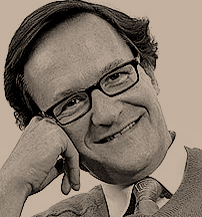Support peaceful
plan
so the U.S. can leave Iraq*
 
By
Yusra
Moshtat, TFF Associate
&
Jan
Oberg, TFF director
March 19-20, 2007
It’s four years ago the United States invaded and occupied Iraq.
But the tragedy is much older. The Gulf War took place 16 years ago. As
a matter of fact, Iraq has been at war ever since Saddam started his meaningless
and US-supported war on Iran. We are talking about almost 30 years of
warfare and 12 years of economic sanctions (1991-2003) that has cost about
1,5 million men, women and children their lives; many more have been wounded
and otherwise had their lives destroyed. Four out of 24 million people
have left, 2 million internally displaced, 2 million has fled abroad.
Add to it the terror under Saddam.
Saddam was sentenced to death and hanged for crimes against humanity,
more precisely for the massacre on 148 Shia Muslims in the tiny town of
Dujail north of Baghdad. Now his victims have seen justice return to an
extent they had hardly ever dared believe they would see, said President
Bush. As expected, he did not mention the role of his own country in the
horrors that has hit the Iraqi people or the thousands of times larger
number of deaths that has resulted from his own policies.
Violence creates terror
For decades the West, led by the United States and United Kingdom, has
systematically supported dictatorships all over the Arab world. Creating
democratic rule was never on the agenda. The Arab nations have played
no other role but to be pawns in the political big power game and the
hunt for oil. How long time did Western powers believe they could continue
without facing resistance and counter-terror?
Iraq is a young country.
Its borders were drawn by the victorious states after World War I; ever
since Iraq’s modern history has been heavily influenced by foreign
powers, directly as well as indirectly.
Having this conscious 80-years old attitude among Western leaders in mind,
it is absolutely impossible to take President Bush and other western leaders
seriously when they speak about democracy and freedom. Rather, they should
be understood as a slap in the face of all the countless victims of these
policies built as they are on lies and deep contempt for every dimension
of a humanist ethos. In reality, rather, what is displayed is a deep,
manifest contempt for and humiliation of Muslims in general and Arabs
in particular.
Oil money won’t end up in Iraq
In such a broader perspective, the truth – and there is a truth
- about contemporary policies begins to emerges. It seldom surfaces in
the media and on short-sighted political agendas. The truth is that the
U.S. is in Iraq to protect and promote its own political, economic and
military interests. And real interests are usually very different from
the noble goals stated for public consumption.
The larger Persian Gulf has huge strategic value. Don’t be surprised
if it is soon revealed soon that Iraq has more oil than Saudi-Arabia.
There is a reason why the U.S. has built four mega-bases and several smaller
ones in Iraq from which it is rather unlikely to withdraw. You simply
steal the oil and see to it that American oil companies get favourable
contracts and an – unfair – share of the control and the profits.
A couple of weeks ago a
new oil law was proposed in the Iraqi parliament, but it was written
in English by an American consultancy firm. It generously “shares”
Iraq’s oil income with foreign companies. And of profits there will
be quite a lot: a barrel of oil costs about 1 US dollar to extract and
is sold at around 60 US dollars. Simultaneously, the country is falling
apart in civil war-like violence and insecurity, a blatantly clear consequence
of the occupation. It’s as natural as it is handy for the oil interests
that the Iraqi people think much more on how to survive everyday problems
in such an environment than on their long-term economic prospects.
The Iraqi people pay the price
Words like democracy and freedom are deceptive, cover-ups or Unspeak.
There is much talk about free elections and that the Iraqis shall run
their own country as if it were not a 7000 year civilization. But there
is no sign of withdrawal, no plan, indeed hardly any discussion of what
shall come after the occupation. So the troops remain and more will come.
American soldiers keep on murdering Iraqis, also completely innocent citizens.
Civil society is torn apart by suicide bombers, terrorists connected to
al-Quaida and other extremist groupings who welcomed the opportunity when
this new battle field was opened to them in Iraq.
The war on terror is not a struggle to undermine terrorism as a political
psychology, it is a hunt for individual terrorists; it will be never-ending
because the war itself, since October 7, 2001, has created and boosted
the problem it was supposed to solve. More than anyone, the Iraqi people
pay the price for all this on top of all other suffering over the mentioned
30 years.
Peace making troops and peacebuilding policies
Surveys make it abundantly clear that the vast majority of Iraqis wants
the troops out. To make that happen there needs to be a post-occupation
vision and a plan for immediate withdrawal. It would have to include a
withdrawal of the abnormal US political and CIA presence in what is history’s
largest-ever embassy – the real government? - and the withdrawal
of all US base facilities.
What is needed is a UN-lead, multi-agency peacebuilding presence in years
to come after the occupation. Fortunately for those who feel deeply about
peace and for Iraq, there is now at least one vision and concrete
withdrawal plan. It deals with a series of steps towards withdrawal
of both troops and bases and military contractors, with reconciliation
among the Iraqis and a comprehensive regional conference framework. Furthermore,
it contains economic reparations and respect for Iraq’s sovereignty
also over its oil resources and the income from them. And, finally, the
establishment of an international truth and reconciliation process.
This plan is American. It’s
designed by Democratic Presidential peace candidate Dennis Kucinich (Democrat).
Be sure, it will meet every kind of resistance from the military-industrial-media-and-oil
complex. But it deserves to be supported by everyone else around the world.
The U.S. operates 737
military facilities in over 130 countries. It’s time citizens
around the world bring pressure to bear on the United States of America.
And we want something more benign, intelligent and visionary than the
Bush administration. So far, Kucinich is the best alternative for Iraq
and, thus, for a more peaceful world.
So let’s stop shouting only “The US out of Iraq”. Unless
combined with a vision of a decent, respectful and helpful international
mission in Iraq and a better policy plan for the Middle East, that slogan
plays into the hand of those who immediately shout back: So what do you
want afterwards, we can’t just leave the mess, got to finish the
job, etc! – and thus justify the ongoing occupation. It’s
not a matter of leaving Iraq, it’s a matter of being there in a
completely different way.
And this is where
we firmly believe that a new discussion can take hold and lead to peace
with and in Iraq.
A shorter version of this article was published in the Swedish daily
Göteborgs-Posten
on March 15, 2007.
Yusra Moshtat is an Iraqi-born environmental expert in Sweden. She
is an Associate of TFF.
Jan Oberg is co-founder and director of TFF and author of “Predictable
Fiasco. The Conflict with Iraq and Denmark as an Occupying Power”
(Copenhagen 2004).
*
Copyright
© TFF & the author 1997 till today. All rights reserved.
Tell a friend about this TFF
article
Send to:
From:
Message and your name
Get
free TFF articles & updates
|